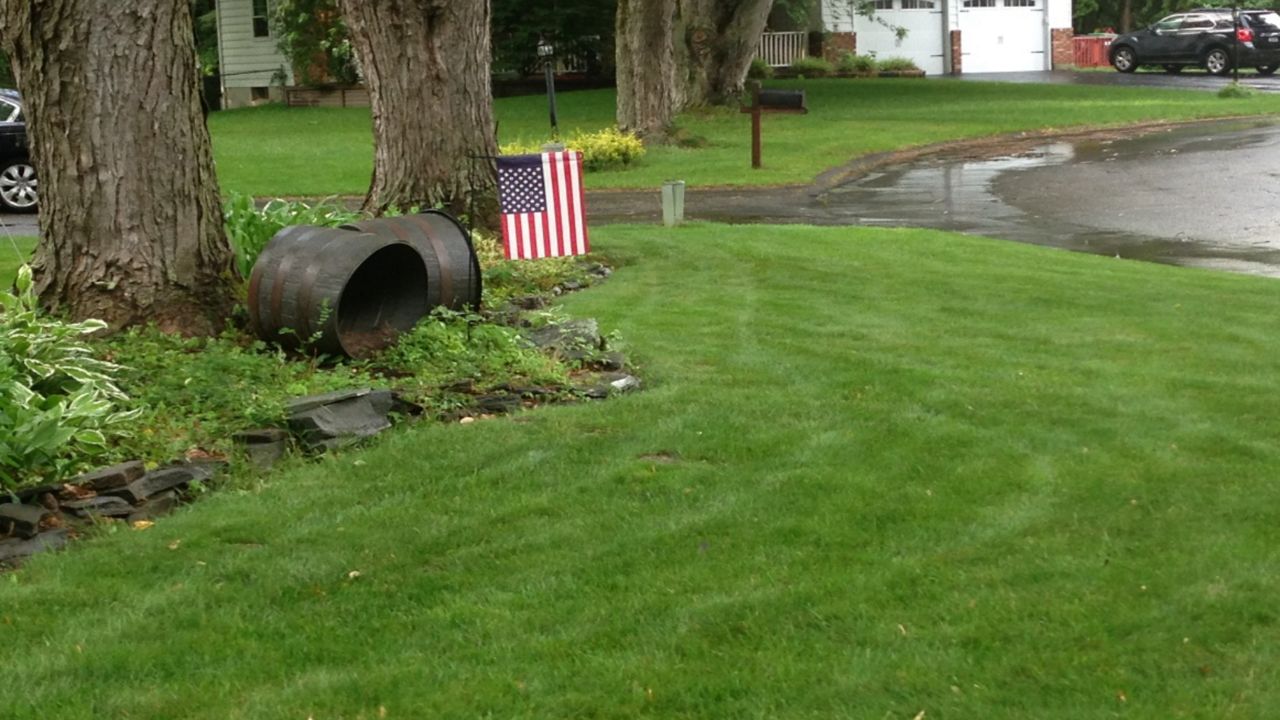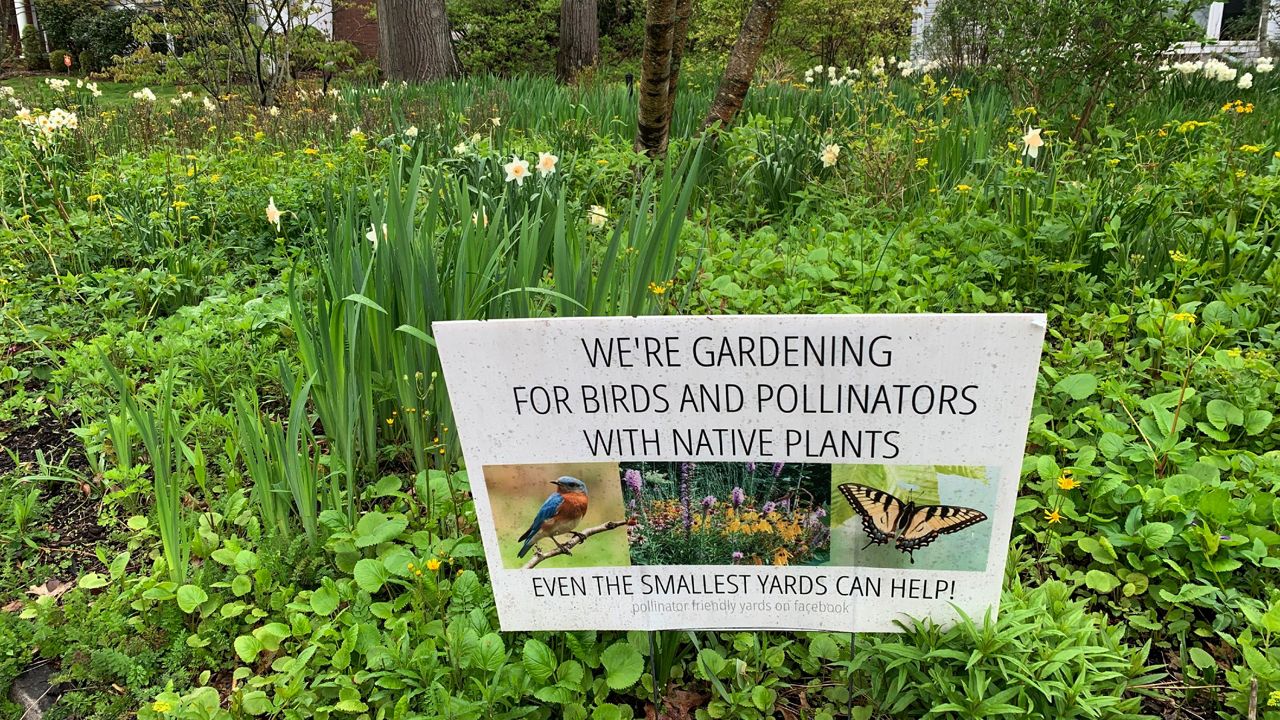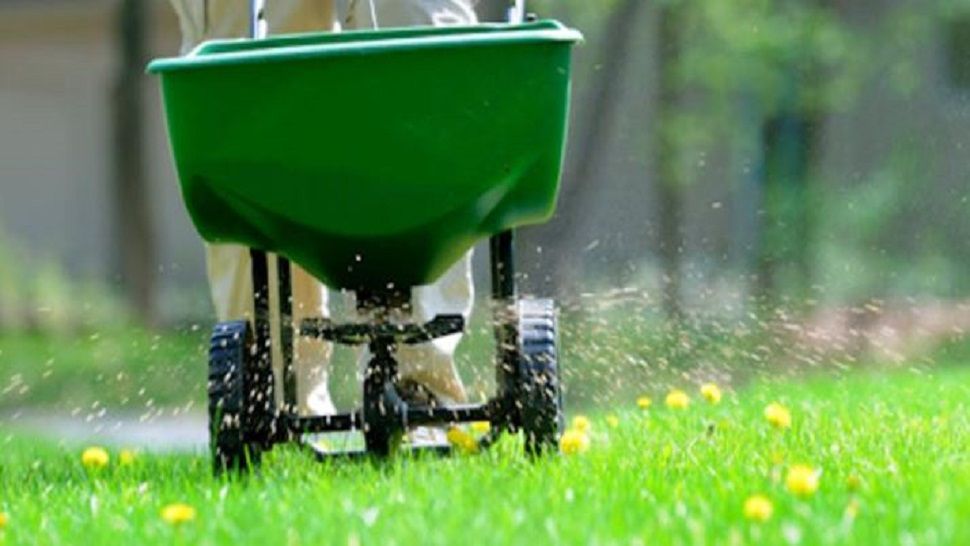With warm weather comes more time spent outside, including doing yardwork. That includes tending to the lawn.
For those who put down fertilizer, why do we apply it when we do, and are there alternatives to the usual synthetic varieties?
In the northern half of the country, cool-season grasses such as bluegrass and fescue typically get three or four feedings each year. Warm-season grasses, such as Bermuda grass, are more common in the southern U.S. and may get more feedings.
Why do we apply lawn fertilizer several times each year? David Gardner, a professor of turfgrass science at Ohio State University, says it’s all about the nitrogen. “Unlike all other nutrients, we do not have a reliable soil test for nitrogen, so we apply based on a schedule.”
Lawns take about a pound of nitrogen per thousand square feet, says Gardner.
Some people apply three times a year, others five. “The important thing is to recognize that newly established lawns, until they are about eight to 10 years old, require relatively more fertilizer and older lawns do not need as much fertilizer.”
For cool-season grasses, the fall feeding is the most important. That dose of nitrogen promotes root growth through the winter.

Most people use synthetic fertilizer, which is readily available and easy to apply. However, if you’d like to use an organic alternative, you have options.
“These tend to be lower in nitrogen, which means that you apply more product in order to get to that one pound of nitrogen rate,” according to Gardner. But, he adds, you can buy them as granulated material and apply the same way as any synthetic fertilizer.
Regardless of what type of lawn fertilizer you use, you can help it do its job better. Apply it in the morning and when grass is actively growing–generally when the outside temperature is between 40 and 90 degrees.
Gardner also suggests fertilizing not long before rain or watering so it can get down into the thatch and soil.
Take care to only get fertilizer on the grass. If any gets on a hard surface like a driveway, sidewalk or street, remove it. Otherwise, it’ll wash into storm sewers, polluting the water.

Don’t spend all your time making your lawn look immaculate, though. Save some effort for planting and caring for a variety of flowers or even herbs to make the bees and other pollinators happy.



